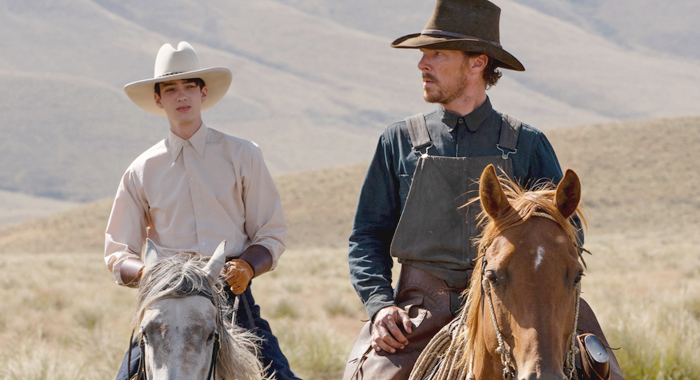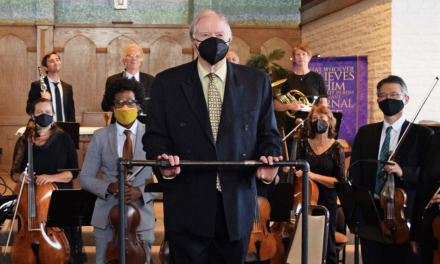
It has been 12 years since writer-director Jane Campion’s last film. Now, Campion returns with a feminist vengeance, with the Power of the Dog. The first female director nominated for the Academy Award, for The Piano in ’94, we can all be grateful Campion shelved plans for retirement when she read the reissue of this Thomas Savage regional novel.
Composer Jonny Greenwood’s haunting banjo score begins. It is Montana. 1925. A boy, in voiceover, tells us: “When my father passed, I wanted nothing more than my mother’s happiness. For what kind of man would I be if I did not help my mother? If I did not save her?”
Then, glimpsed as he strides across a ranch yard, we meet the cruel, poisonously macho Phil Burbank, played by Benedict Cumberbatch, in a performance that will eventually steal every inch of the screen and more. He and his brother George have been given the spread by their unloving parents. Jesse Plemons subsumes all ego to deliver the meek character George. And while Phil may have graduated Phi Beta Kappa from Yale, his every abrasive move is calculated to negate that. We are primed to wonder: what goes on here?
On a cattle drive, the brothers encounter the widow, Rose (played by Kirsten Dunst in a tortured, transformative role) and her odd, affectless but artistic and autodidactic teenage son Peter. This is Kodi Smit-McPhee, marvelous in the movie Let Me In, in a performance here that reaches for Cumberbatch territory! Rose and George find comfort in each other, but once living at the ranch, with Phil’s gaslighting, and Rose unravelling, what happens echoes the title’s reference to Psalm 22, a cry to be saved from the torments of the enemy, with the pleading:” Deliver my soul from the sword, my darling from the power of the dog”.
The brilliance of this film is an exquisitely defined revelation, no less important than Peter’s earlier questions. A scene with Cumberbatch and a monogrammed neckerchief may be the most erotic thing ever filmed, while providing a backstory without words. This fable is about primal injury, how the first cut is the deepest, and the deconstruction of a rugged western cultural myth. Your eye is drawn to undulating hills, a dirty finger probing the pink center of a paper flower, the plaiting and weaving of pliable leather. Campion and her cinematographer Ari Wegner are women who know how to juxtapose the harsh mise-en-scéne with the sensual detail, to give us clues so subliminally delivered as to be subversive.
When do we know where this Greek tragedy is heading? It depends upon when your subconscious grabs the reins. And perhaps how readily one can accept a terrible vengeance as a longed-for deliverance.
I refer you to the Psalm.
For KSQD’s Film Gang, this is Maureen O’Connell












